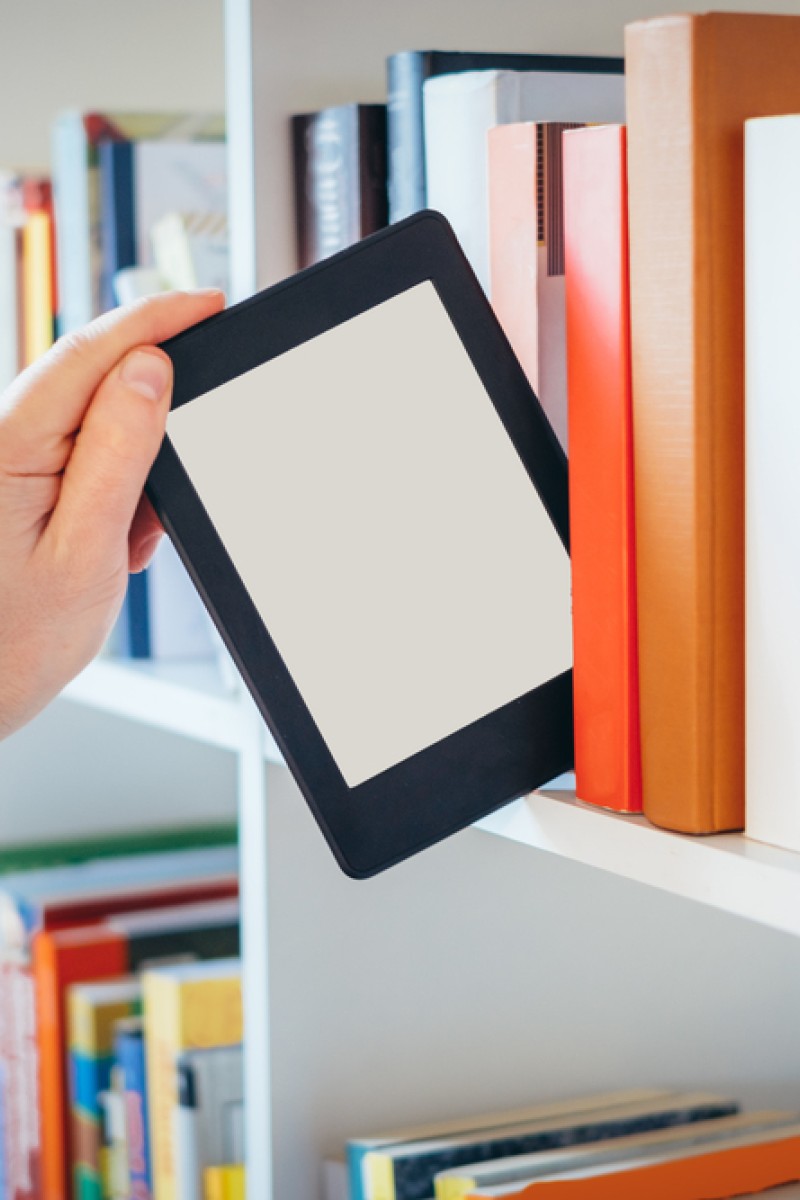
Joshua Cheng, 17, Hong Kong University Graduate Association College
What would you prefer to carry, heavy physical books or a lightweight e-book tablet? The answer is obvious. E-books are not only convenient and economical, they are also better for the environment than paper books. I strongly believe e-books should replace physical books.
Firstly, physical books aren’t space efficient. Think about it: a normal-sized novel has roughly 300-400 pages. It’s quite hard to carry that with you when you travel to and from school. Plus, with all the textbooks you already have to carry, is it even possible to fit an extra book in your schoolbag? You can’t change the thickness of a page, but as technology becomes more advanced, tablets will only become thinner and lighter. In one single tablet, you can store your textbooks and as many interesting reads as you like, and you can access them all anytime, anywhere.
Moreover, e-books are budget-friendly. Let’s use the popular book series A Song of Ice and Fire by George R.R. Martin as an example; buying physical copies of the entire series will set you back about US$60 on Amazon – and that isn’t taking shipping fees into account. On the other hand, the e-book version only costs about US$22 and obviously, there’s no need for shipping. Publishers only need to pay copyright fees – and even for older books out of copyright, there are lots of free online versions too.
Using e-books also means fewer trees need to be chopped down to produce paper. Trees are the lungs of our world: they are essential for taking in all the carbon dioxide produced by human activity, and they give out the oxygen that we need to live. They also provide habitats for an immense amount of wildlife. If there is an alternative to cutting down trees, shouldn’t we all adopt it and do our bit to save our dying planet?
Given that e-books are cheap, convenient and eco-friendly, I believe they should completely replace physical books.
Face off: should print books should give way to e-books?
Pauline Wong, 16, Maryknoll Convent School (Secondary Section)
Even though I am a Kindle user myself, and cannot deny the convenience of e-books, I don’t believe they will ever be able to truly replace physical books.
With real books, readers can flip back and forth easily and mark pages with a paper clip or bookmark. They can refer back to something they may have forgotten about, or even just go back and admire the foreshadowing which lead them to the plot twist they are currently at. However, e-books don’t always allow for such smooth browsing. They can be slow to respond, resulting in a lag when you try to flip through the pages.
If the purpose of e-books really is to replace printed books, such problems can’t be overlooked. Until the technology improves, we cannot say that e-books are better than their printed counterparts.
Most e-book readers have LED screens which emit blue light, a range of the light spectrum that is harmful to the human eye. Looking at such a screen for long periods of time may affect our body clock, and lead to problems such as sleep deprivation. While reading printed books at night and using a lamp can cause similar problems, the effects of reading using a blue light screen are more severe, as the released energy is more powerful than that of an ordinary lamp. Of course, some e-book readers, like some Kindle models, have e-ink screens which eliminates this problem. But again, until this technology exists for all e-book readers, we can’t do away with physical books altogether.
E-books certainly offer readers some convenience. However, the disadvantages can be harmful to the human body and cannot be ignored. Until we have solved many of the problems caused by the use of e-books, printed books will remain superior.
